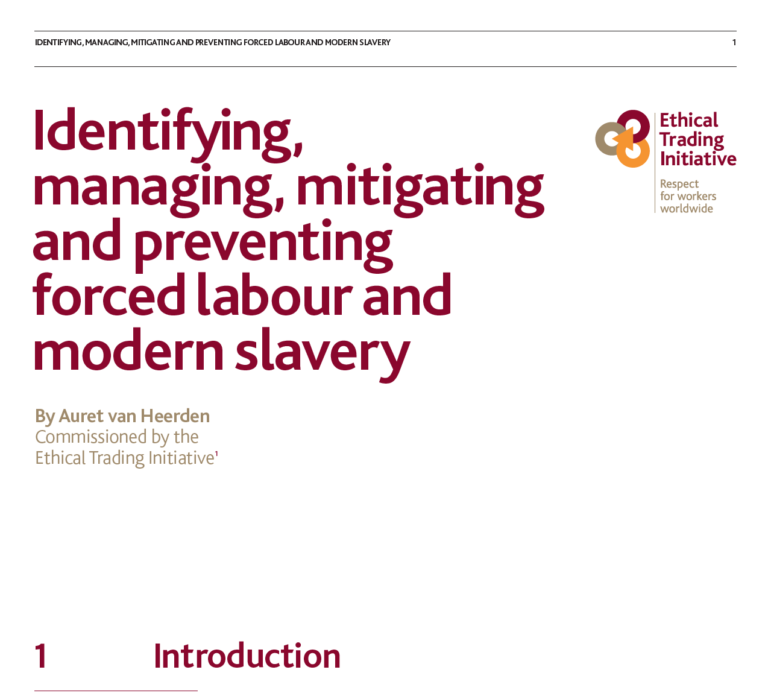This think piece has been developed for a one-day expert/ stakeholder meeting on 21 October 2015, convened by the Ethical Trading Initiative (ETI). The purpose of the meeting is to bring a diverse set of actors – practitioners and policy makers – to share their insights and experiences of working on forced labour in global supply chains; to learn lessons about promising practices that are having real impact on workers; to identify gaps where they exist; and to brainstorm ideas about how ETI as a multi-stakeholder organization can add most value to the work already underway.
The paper aims to clarify the concepts and issues, the actors and the options for addressing the challenges in preventing, managing and mitigating forced and slave labour in the global labour market. It provides a multi-stakeholder perspective to frame the analysis, with the intention of developing a ‘theory of change’ for a holistic response. It highlights some issues and options for how we can begin to change the landscape for the longer term involving multiple processes, actors and entry points. The critical actors include companies, governments, non-governmental organizations (NGOs), trade unions, academics and international actors.The paper also offers insights from several examples of what is working (or not working), where and why. It is intended to complement a number of important reports relevant to this discussion. There are also references to a number of valuable guidance notes and reports.

